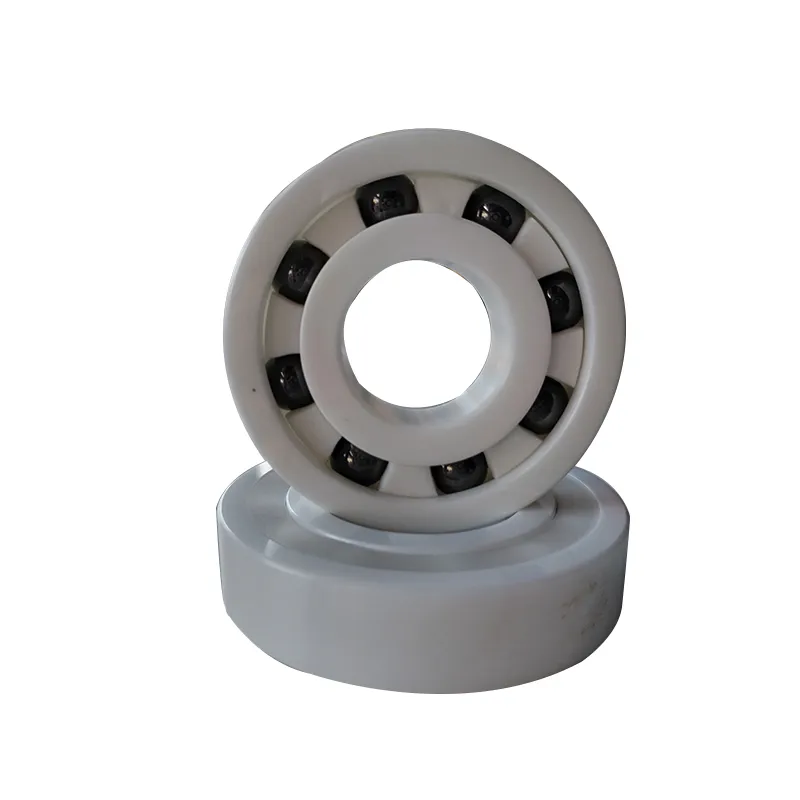May . 07, 2025 14:07 Back to list
The Importance of One-Way Ceramic Beads in Increasing Mechanical Efficiency
In modern industry, the improvement of mechanical efficiency can not only significantly reduce energy consumption, but also extend the service life of equipment, thereby reducing maintenance costs. Therefore, researching and applying new materials to improve mechanical efficiency is particularly important. In this regard, the emergence of onewheel ceramic bearings undoubtedly brought revolutionary changes to mechanical systems in various industries.

Onewheel ceramic beads have excellent high temperature resistance and wear resistance, and can maintain their performance in extreme working environments
This material can typically withstand high temperatures exceeding 200 degrees Celsius, while traditional metal bearings are prone to deformation or wear at the same temperature. Therefore, in the field of high-temperature operations, such as metallurgy, aerospace, and chemical industries, the application of quantum ceramic bearings can effectively reduce problems caused by wear and thermal expansion, thereby improving the stability and reliability of machinery.
The low friction coefficient characteristics of onewheel ceramic beads significantly improve mechanical efficiency
Friction is one of the main sources of energy consumption in mechanical systems. Compared with traditional metal materials, sealed ceramic bearings can operate under lower friction conditions, which means that the energy consumption of mechanical systems will be significantly reduced under the same load. In addition, low friction can reduce heat generation, avoid overheating, and help protect the integrity of other components, thereby further improving overall mechanical efficiency.
The corrosion resistance of onewheel ceramic beads is also an important advantage in specific application scenarios
In some corrosive environments, such as chemical processing or marine engineering, high-temperature ceramic materials can effectively resist the erosion of various chemical substances, ensuring the reliability and stability of skateboard ceramic bearings in long-term use. Due to its excellent corrosion resistance, the maintenance frequency of mechanical systems can be significantly reduced, thereby improving the overall efficiency of the machinery.
The lightweight characteristics of onewheel ceramic beads also contribute to improving mechanical performance
In applications that require high speeds or rapid acceleration and deceleration, reducing the mass of components can significantly improve response speed and power performance. This characteristic is particularly important in fields such as aerospace, and its efficiency improvement is directly related to the overall performance and safety of the aircraft.
In summary, as a new type of engineering material, skiff ceramic bearings greatly improve the efficiency of mechanical systems through their excellent properties such as high temperature resistance, low friction coefficient, corrosion resistance, and lightweight. This not only brings significant economic benefits to the production of various industries, but also provides important support for promoting the achievement of sustainable development goals. In the future development, high-temperature ceramic bearings are expected to be widely used in more fields, laying a solid foundation for the high efficiency and environmental protection of machinery.
Latest news
-
W211PP5 Square Bore Disc Harrow Bearings | Heavy-Duty Sealed
NewsNov.17,2025
-
11018074/82 mm F-801806-PRL steel cage mix reducer bearing
NewsNov.17,2025
-
UCF207-22 4-Bolt Flange Housing Square Bearing Heavy-Duty
NewsNov.17,2025
-
206KRR6-NR 1" Hex Bore Bearing | Sealed, Snap Ring, Ag-Grade
NewsNov.17,2025
-
6303 2RS High Quality Deep Groove Ball Bearing 17X47X14 - C3
NewsNov.10,2025
-
8017058mm 22316 CA Spherical Roller Bearing | High Load
NewsNov.10,2025




